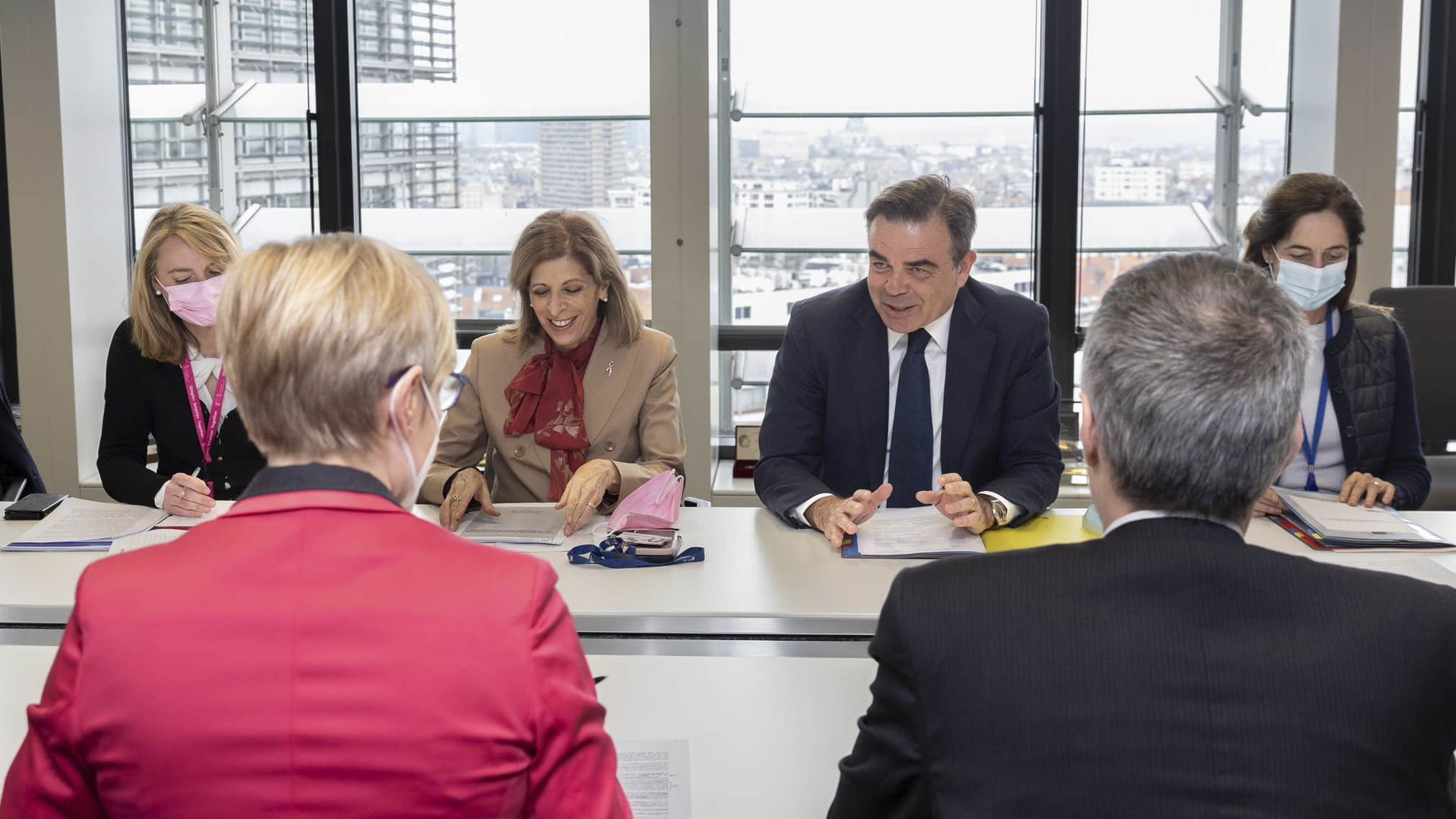Brussels, 7 March 2023
Yesterday afternoon, the European Public Health Alliance (EPHA) and the European Patients’ Forum (EPF) were invited for an exchange of views with European Commission Vice-President Margaritis Schinas and Commissioner for Health and Food Safety Stella Kyriakides on the upcoming pharmaceutical legislation, with a focus on the issue of medicine shortages.
In light of the upcoming revision to the pharmaceutical legislation, the public health issue of medicine shortages is high on the agenda of both EU policymakers and patient representatives. Shortages in healthcare disrupt the availability of both medicines and medical devices and may undermine patients’ right to timely and equitable access to quality healthcare.
Sky-rocketing prices and increasing medicine shortages are threatening access to affordable medicines for people across EU member states. The revision of the EU pharmaceutical legislation presents a unique (once in a generation) opportunity to improve this.
Public health consequences
Shortages pose a public health issue, impacting patients’ access to care as well as healthcare professionals’ work, as was discussed on Monday. Understanding the experiences that result from medicine shortages can add significant value in mitigating the real-life impact, says EPF, as the repercussions range from having less to no treatment options to practical and financial burdens and emotional distress.
EPF president Marco Greco:
“We had a constructive meeting, during which we raised our concerns about the upcoming revision of the pharmaceutical legislation and especially on the issue of shortages. We reiterated our recommendations for better patient engagement in the early development stages of policy solutions, particularly in enabling patients to report shortages to authorities and we have also launched the idea of creating a registry of shortages, that will allow authorities to keep track of future shortages events. We were reassured about the central role the patient community will play in the next steps and we are confident that our proposals will be integrated in the upcoming legislation.”
Both organisations agree that cultivating ongoing insight into the reasons of the shortages, including supply chain issues and commercial decisions, and its consequences are essential to mitigate the impact for patients.
“We welcome the EC’s efforts in addressing shortages of medicines. Not only have shortages been rapidly increasing in all EU countries, but they also strongly impact patients’ care and health, as well as the work of healthcare professionals. As usual, the impact of shortages of medicines unequally affects vulnerable groups that already face obstacles to access the medicines they need”, said Dr Milka Sokolović, Director General of EPHA.
Pharmaceutical legislation
One of the key events in the context of medicine shortages is without a doubt the upcoming, long-awaited pharmaceutical legislation revision, on which the stakeholders agree it “is an opportunity to address the security of supply and shortages”.
“The upcoming revision of the EU pharmaceutical legislation offers a unique opportunity to address shortages of medicines – along with other structural barriers such as lack of transparency in pharmaceutical markets”, said Dr Rosa Castro, Senior Policy Manager at EPHA. “More transparency of supply chains as well as overall more transparency on R&D costs will shed light and help to strike the right balance between innovation incentives and access to affordable medicines”.
Anca Toma, executive director at the European Patients’ Forum, adds:
“A range of tools is needed to address this issue. EPF actively supports the efforts towards a comprehensive, patient-centred system to prevent shortages and alleviate the impact. We are pleased about our meeting today and join EPHA in encouraging the European Commission to avoid any further delay in the presentation of its upcoming legislative proposal.”

Photo by the European Commission
